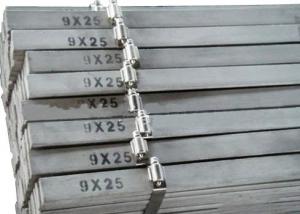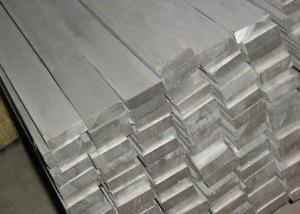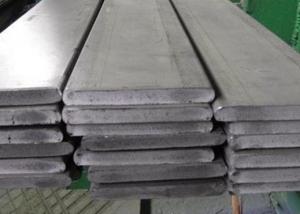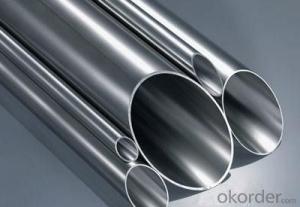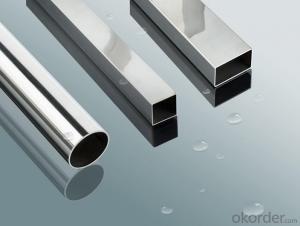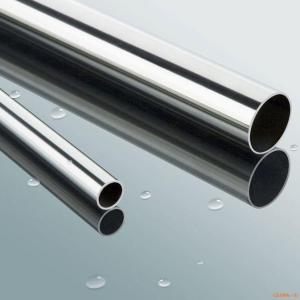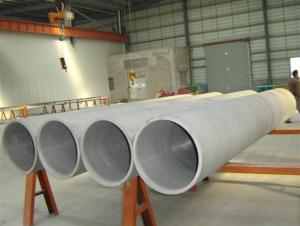Stainless Steel Flats,JISHUN
- Loading Port:
- China Main Port
- Payment Terms:
- TT or LC
- Min Order Qty:
- 5 Tons m.t.
- Supply Capability:
- 1000 Tons Per Month m.t./month
OKorder Service Pledge
OKorder Financial Service
You Might Also Like
Stainless Steel Flats
1. Standard: AISI, GB, JIS, ASTM, DIN, EN
2. Grade: 1).200Series: 201,202.
2).300Series: 301,302,303,304,304L,316,316L,321.
3).400Series: 410,410S,416,420,430,430F.
3. Size:3x25mm- 80x250mm
4. Length: 2m-6m
5. Craft: HRAP, or cold drawn
6. Stainless Steel Flat Bar Surface: Pickling or polished
7. MOQ: 1 Ton
8. Delivery: within 20 days
9. Package: Waterproof with tape
10. Application: These products are widely supplied to areas of machine-made industry, chemical industry, shipping industry,architecture, food industry, household products etc.
|
Size |
Thickness (mm) | |||||||||||
|
Width (mm) |
3 |
4 |
5 |
6 |
8 |
10 |
12 |
14 |
16 |
20 |
25 |
30 |
|
Theoretical Weight (kg/m) | ||||||||||||
|
10 |
0.238 |
0.32 |
0.4 |
0.48 |
0.63 |
|
|
|
|
|
|
|
|
15 |
0.36 |
0.48 |
0.59 |
0.71 |
0.95 |
1.19 |
|
|
|
|
|
|
|
20 |
0.476 |
0.63 |
0.79 |
0.95 |
1.27 |
1.59 |
1.9 |
|
|
|
|
|
|
25 |
0.585 |
0.79 |
0.99 |
1.19 |
1.59 |
1.98 |
2.38 |
|
|
|
|
|
|
30 |
0.714 |
0.95 |
1.19 |
1.43 |
1.9 |
2.38 |
2.85 |
3.33 |
3.81 |
4.75 |
5.948 |
|
|
40 |
0.952 |
1.27 |
1.59 |
1.9 |
2.54 |
3.17 |
3.81 |
4.44 |
5.08 |
6.34 |
7.93 |
9.52 |
|
50 |
1.19 |
1.59 |
1.98 |
2.38 |
3.17 |
3.97 |
4.76 |
5.55 |
6.34 |
7.93 |
9.91 |
11.9 |
|
60 |
1.428 |
1.9 |
2.38 |
2.85 |
3.81 |
4.76 |
5.71 |
6.66 |
7.61 |
9.52 |
11.9 |
14.27 |
|
70 |
|
2.22 |
2.78 |
3.33 |
4.44 |
5.55 |
6.66 |
7.77 |
8.88 |
11.1 |
13.88 |
16.65 |
|
80 |
|
|
3.17 |
3.81 |
5.08 |
6.34 |
7.61 |
8.88 |
10.15 |
12.69 |
15.86 |
19.03 |
|
90 |
|
|
3.57 |
4.28 |
5.71 |
7.14 |
8.56 |
9.99 |
11.42 |
14.27 |
17.84 |
21.41 |
|
100 |
|
|
3.97 |
4.76 |
6.34 |
7.93 |
9.52 |
11.1 |
12.69 |
15.86 |
19.82 |
23.79 |
|
110 |
|
|
|
5.23 |
6.98 |
8.72 |
10.47 |
12.21 |
13.96 |
17.45 |
21.81 |
26.17 |
|
120 |
|
|
|
5.71 |
7.61 |
9.52 |
11.42 |
13.32 |
15.23 |
19.03 |
23.79 |
28.55 |
|
130 |
|
|
|
6.19 |
8.25 |
10.31 |
12.37 |
14.43 |
16.49 |
20.62 |
25.77 |
30.93 |
|
140 |
|
|
|
6.66 |
8.88 |
11.1 |
13.32 |
15.54 |
17.76 |
22.2 |
27.76 |
33.31 |
|
150 |
|
|
|
7.14 |
9.52 |
11.9 |
14.27 |
16.65 |
19.03 |
23.79 |
29.74 |
35.69 |
|
160 |
|
|
|
7.61 |
|
12.69 |
15.23 |
17.76 |
20.3 |
25.38 |
31.72 |
38.06 |
|
170 |
|
|
|
|
|
13.48 |
16.18 |
18.87 |
21.57 |
26.96 |
33.7 |
40.44 |
|
180 |
|
|
|
|
|
14.27 |
17.13 |
19.98 |
22.84 |
28.55 |
35.69 |
42.82 |
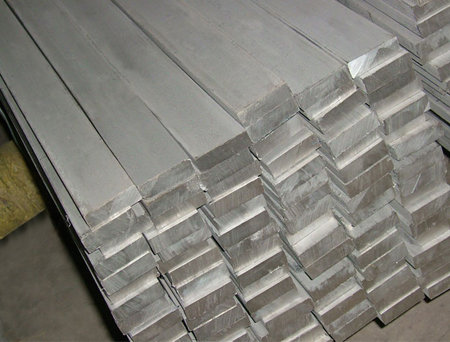
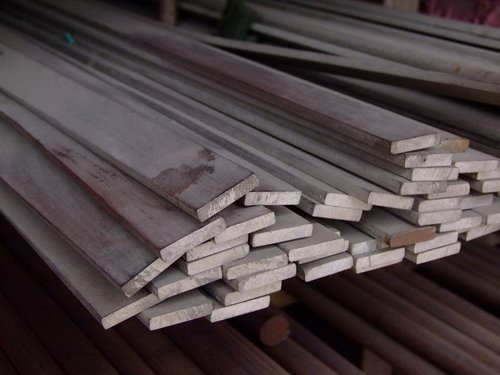
- Q:Can stainless steel pipes be used for outdoor handrails?
- Yes, stainless steel pipes can be used for outdoor handrails. Stainless steel is highly resistant to corrosion and rust, making it an excellent choice for outdoor applications. It is durable, low-maintenance, and able to withstand various weather conditions, making it a suitable material for outdoor handrails.
- Q:Can stainless steel pipes be used for construction?
- Certainly, construction can utilize stainless steel pipes. Stainless steel, being an incredibly durable and corrosion-resistant material, is well-suited for a wide range of construction applications. It is frequently employed in plumbing systems, water supply lines, and underground piping where the ability to resist corrosion is of utmost importance. Moreover, stainless steel pipes are utilized in the construction of bridges, buildings, and infrastructure projects due to their robustness and capacity to withstand harsh weather conditions. Furthermore, the aesthetic appeal and minimal upkeep requirements of stainless steel make it a preferred choice for architectural designs. In conclusion, stainless steel pipes are a dependable and enduring option for construction purposes.
- Q:Are stainless steel pipes suitable for pharmaceutical factories?
- Yes, stainless steel pipes are suitable for pharmaceutical factories. Stainless steel is a popular material choice in the pharmaceutical industry due to its excellent corrosion resistance and hygienic properties. It is resistant to various chemicals and can withstand high temperatures and pressures, making it ideal for transporting and storing pharmaceutical products, chemicals, and other fluids. Stainless steel pipes also have a smooth surface, which promotes easy cleaning and prevents the accumulation of bacteria, ensuring the pharmaceutical products remain uncontaminated. Furthermore, stainless steel is a durable material with a long lifespan, reducing the need for frequent replacements and maintenance. Overall, stainless steel pipes are a reliable and suitable choice for use in pharmaceutical factories.
- Q:Can stainless steel pipes be hydrotested?
- Yes, stainless steel pipes can be hydrotested. Hydrostatic testing is a common method used to check the integrity and strength of pipes, regardless of the material they are made from. Stainless steel pipes can withstand hydrostatic pressure well and are frequently subjected to hydrotesting to ensure they meet safety and quality standards.
- Q:What is the weight of stainless steel pipes?
- The weight of stainless steel pipes may differ based on factors such as their length, diameter, and wall thickness. Due to its high density, stainless steel pipes generally have a greater weight in comparison to pipes manufactured from alternative materials. Typically, the weight of stainless steel pipes is quantified in kilograms or pounds per meter or per foot. It is crucial to acknowledge that the weight can vary depending on the particular grade of stainless steel employed during the pipe fabrication process.
- Q:Can stainless steel pipes be used in harsh environments?
- Yes, stainless steel pipes can be used in harsh environments. Stainless steel is highly resistant to corrosion, making it an ideal choice for environments that are exposed to harsh conditions such as high temperatures, chemicals, and moisture. It is commonly used in industries such as oil and gas, chemical processing, marine, and wastewater treatment, where the pipes are subjected to extreme conditions and need to withstand corrosion and erosion. Additionally, stainless steel pipes have excellent strength and durability, making them suitable for environments with high pressure or mechanical stress. Overall, stainless steel pipes are a reliable and long-lasting option for use in harsh environments.
- Q:What is the maximum pressure rating for stainless steel pipes?
- The maximum pressure rating for stainless steel pipes can vary depending on several factors such as the grade of stainless steel, the diameter and wall thickness of the pipe, and the specific application or industry requirements. However, stainless steel pipes are known for their high strength and corrosion resistance, making them suitable for high-pressure applications. In general, stainless steel pipes can have maximum pressure ratings ranging from a few hundred psi (pounds per square inch) to several thousand psi. It is crucial to consult the appropriate industry standards, codes, and specifications or consult with a qualified engineer or manufacturer to determine the specific maximum pressure rating for a particular stainless steel pipe in a given application.
- Q:What is the difference between 904L and 2205 stainless steel pipes?
- 904L and 2205 stainless steel pipes differ in various aspects. Firstly, their composition varies significantly. 904L stainless steel is a high alloy austenitic stainless steel with elevated levels of chromium, nickel, and molybdenum. It also has a low carbon content, granting it remarkable resistance to corrosion and pitting. Conversely, 2205 stainless steel is a duplex stainless steel that combines austenite and ferrite phases. It contains lower amounts of chromium and nickel compared to 904L, but boasts higher levels of molybdenum and nitrogen. Secondly, the mechanical properties of these steels differ. 904L stainless steel exhibits exceptional toughness and high strength, making it suitable for applications in aggressive environments such as chemical processing plants and offshore oil and gas platforms. Conversely, 2205 stainless steel possesses good overall mechanical properties, including high tensile and yield strength. It is commonly utilized in industries like marine, paper, and pulp, wherein resistance to stress corrosion cracking is crucial. Additionally, their resistance to corrosion separates them further. Although both steels are corrosion-resistant, 904L stainless steel showcases remarkable resistance to a wide range of corrosive environments, including sulfuric acid, hydrochloric acid, and saltwater. This makes it an ideal choice for industries that demand extreme corrosion resistance. On the other hand, 2205 stainless steel, while not as corrosion-resistant as 904L, still offers good resistance to many corrosive substances, rendering it suitable for various applications. Cost constitutes another distinguishing factor between these steels. Due to its high alloy content and superior properties, 904L stainless steel generally carries a higher price tag than 2205 stainless steel. Therefore, the selection between the two will depend on the specific requirements of the application and the allocated budget. In conclusion, the main disparities between 904L and 2205 stainless steel pipes emerge in their composition, mechanical properties, corrosion resistance, and cost. Comprehending these distinctions aids in selecting the appropriate stainless steel pipe for a given application.
- Q:Can stainless steel pipes be lined with polyethylene?
- Yes, stainless steel pipes can be lined with polyethylene. Lining stainless steel pipes with polyethylene is a common practice in various industries, including oil and gas, chemical processing, and water distribution. The polyethylene lining provides several benefits such as corrosion resistance, increased flow capacity, reduced friction, and improved resistance to chemicals. This lining process involves inserting a polyethylene liner into the stainless steel pipe and then heating and expanding it to create a tight fit. This lining technique is effective for protecting the stainless steel pipes from corrosion and extending their lifespan.
- Q:Can stainless steel pipes be used for gas supply?
- Yes, stainless steel pipes can be used for gas supply. Stainless steel is known for its excellent corrosion resistance and high strength, making it a suitable material for transporting various gases, including natural gas and propane.
1. Manufacturer Overview |
|
|---|---|
| Location | Hebei,China |
| Year Established | 2009 |
| Annual Output Value | Above US$1 million |
| Main Markets | Asia, Middle East,America |
| Company Certifications | CE, CCC, ISO90001 |
2. Manufacturer Certificates |
|
|---|---|
| a) Certification Name | |
| Range | |
| Reference | |
| Validity Period | |
3. Manufacturer Capability |
|
|---|---|
| a)Trade Capacity | |
| Nearest Port | Tianjin |
| Export Percentage | 0.3 |
| No.of Employees in Trade Department | 4 People |
| Language Spoken: | English;Chinese |
| b)Factory Information | |
| Factory Size: | Above 5,000 square meters |
| No. of Production Lines | 3 |
| Contract Manufacturing | OEM Service Offered;Design Service Offered |
| Product Price Range | Lower |
Send your message to us
Stainless Steel Flats,JISHUN
- Loading Port:
- China Main Port
- Payment Terms:
- TT or LC
- Min Order Qty:
- 5 Tons m.t.
- Supply Capability:
- 1000 Tons Per Month m.t./month
OKorder Service Pledge
OKorder Financial Service
Similar products
New products
Hot products
Hot Searches
Related keywords

